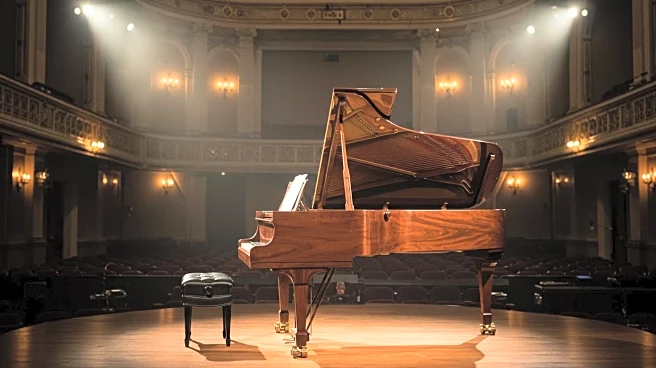What's Happening?
The Thirsty Ears Festival, Chicago's only classical music street festival, celebrated its 10th anniversary in the Uptown neighborhood. The event featured live performances from groups like The Confluence Quartet, which includes musicians with diverse professional backgrounds. The festival, organized by Access Contemporary Music (ACM), aims to make classical music accessible by stripping away stereotypes and focusing on the music itself. The festival also included shopping, food, and a mini film festival, attracting hundreds of attendees who enjoyed the calming and peaceful atmosphere.
Why It's Important?
The Thirsty Ears Festival plays a significant role in democratizing classical music, challenging the perception that it is elitist or inaccessible. By hosting the event in a public street setting, the festival reaches a broader audience, encouraging community engagement and cultural appreciation. This approach not only supports local musicians but also fosters a sense of community and cultural enrichment. The festival's success over the years, including during the COVID-19 pandemic, highlights the public's enduring interest in classical music and the potential for similar events to thrive in urban settings.
What's Next?
As the festival continues to grow in popularity, organizers may explore ways to enhance the experience, such as improving sound quality or incorporating more interactive elements. The festival's success could inspire other cities to host similar events, promoting classical music and cultural engagement nationwide. Additionally, the festival's focus on accessibility and community involvement may influence other cultural events to adopt similar inclusive approaches.
Beyond the Headlines
The festival's emphasis on breaking down barriers associated with classical music could lead to a broader cultural shift, encouraging more diverse participation in the arts. By challenging traditional perceptions, the festival may inspire new generations to explore and appreciate classical music, potentially leading to increased support for arts education and funding.











